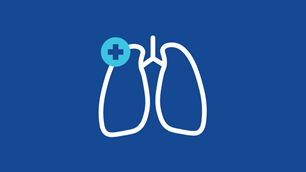Everything you need to know about canine respiratory illness

What is canine infectious respiratory disease complex (CIRDC), also known as kennel cough complex? This is a contagious respiratory illness, which means it can spread to your dog through exposure to other animals. There is no evidence that it can spread to humans.
Luckily, there are measures you can take to keep your dog safe! First, it’s incredibly important to ensure your pet’s respiratory vaccines are up-to-date, including for canine infectious respiratory disease (also known as Bordetella or kennel cough) and canine influenza virus. This is the easiest and most effective preventive way to protect your pet.
Next, if there are infected dogs in your area or you feel your dog is vulnerable, limiting their time around other dogs can help stop the spread of canine respiratory illness. You can do this by reducing time at doggy daycares, boarding facilities, dog parks, communal water bowls or any other place that is frequented by other dogs.
However, exercise is still important for your pet’s health. Taking them for their daily walks is fine, but they should be kept on a leash. Practicing good hygiene, such as keeping your dog and their surroundings clean, can also help.
Stopping the spread of canine respiratory illness also means monitoring your dog for the following signs so you can ensure they remain isolated if need be:
While prevention is always the best course of action, canine respiratory illness is treatable. Most cases resolve within seven to 10 days with supportive care and antibiotics. However, antibiotics are not preventatives and should only be prescribed by your VCA veterinarian.
If you notice your dog exhibiting any of the above signs, be sure to book an appointment with your VCA veterinarian and notify us before your arrival so we can reduce the risk of infection to other patients. We will take a sample from your dog’s nose and throat that will be evaluated by a laboratory within three to five days. During this time, it’s important that your dog remains isolated from other dogs.
If your dog’s signs worsen or seem severe, please visit one of our urgent care or emergency hospitals. We’re always ready to help your dog feel their best!